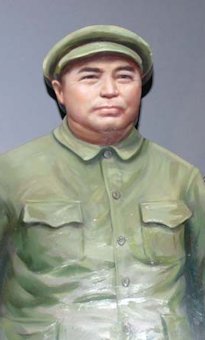
|
Chinese Forces Logistical Problem in Korea - Page 1
Warning Signs The Korean War alerted the PLA leadership to the "the importance of and the need for major change. When China entered the war, logistics support to the operations was carried out under the policy of "self-reliance and basing ourselves on home supplies." This policy, which the acting Chief of Staff, Nie Rongzhen, credited to Zhou Enlai, who oversaw details of logistics support of the Chinese People's Volunteers (CPV) from the rear, depended on the local population for food and the enemy for captured ammunition. It proved inadequate, however, outside China's borders. As a consequence, Nie lamented, significant, even decisive, operations were squandered or prematurely cut short because of shortfalls in basic supplies, such as clothing, food, or ammunition. Difficult to Get Supplies By the beginning of the Third Campaign, which began on December 31, 1950, the CPV, under the command of Peng Dehuai, began to lose momentum as its forces pushed retreating UN units below the 38th parallel, capturing Seoul, and penetrated south. Mao Zedong sought a decisive victory that would throw UN forces off the peninsula, but stretched supplies lines and inadequate logistics proved insurmountable, and the CPV was eventually forced to withdraw north. UN forces regained control of Seoul. In his Cultural Revolution confessions Peng explained the predicament that his exhausted forces faced to carry out Mao's expectations. Having fought three major campaigns in a row in severe winter, he wrote, and having endured relentless punishment from enemy bombers our supply lines had now been extended, so it was very difficult to get provisions. ⇦ Back to Page 3 Return to Korean War Choices On to Page 2 ⇨ |
| General Peng Dehuai |